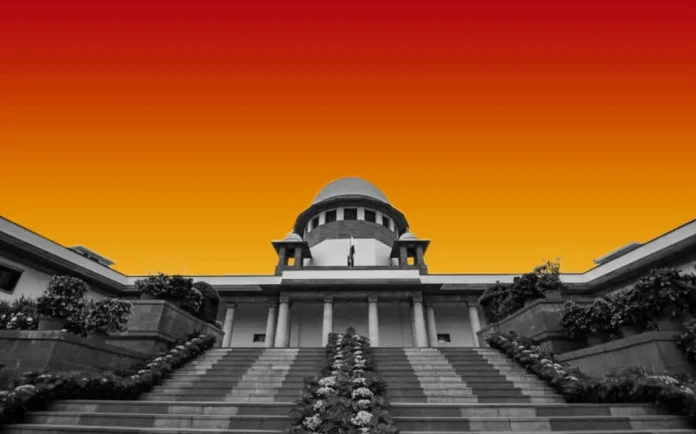In a significant directive reaffirming the principles of transparency and institutional integrity in police administration, the Supreme Court of India has urged the Union Public Service Commission (UPSC) to forward its panel of recommendations for the appointment of a regular Director General of Police in Tamil Nadu without further delay. The order was pronounced on 8 September 2025 by a bench comprising Chief Justice of India B. R. Gavai, Justice K. Vinod Chandran, and Justice Atul S. Chandurkar while adjudicating a contempt petition that raised serious objections to the State’s continued reliance on an “acting” police chief.
The petition was instituted by noted human rights lawyer Henri Tiphagne, who highlighted that Tamil Nadu had for months been functioning under an officer holding charge in an acting capacity, contrary to the Supreme Court’s earlier mandates. He argued that this practice directly violated the directives laid down in the landmark Prakash Singh judgment and the subsequent interim orders of July 2018, which had categorically prohibited the appointment of acting DGPs. According to him, the failure to install a regular police chief was not merely an administrative lapse but a conscious dilution of judicially prescribed safeguards intended to protect the independence of the police force.
The State, represented by Senior Advocate Mukul Rohatgi, sought to explain the delay by pointing to litigation before the Central Administrative Tribunal. An IPS officer had approached the Tribunal seeking to be considered for inclusion in the panel of eligible officers. This proceeding, and the subsequent rounds of appeals that followed, created a legal stalemate which, according to the State, prevented it from moving forward with the appointment. The Tribunal eventually dismissed the officer’s application on 30 April 2025. When the matter reached the Supreme Court in the form of a special leave petition, it too was dismissed on 22 August 2025, effectively clearing the last judicial impediment. Rohatgi stressed that the State was now in a position to act but required the UPSC’s recommendations before a regular appointment could be made.
The Supreme Court, while taking note of this explanation, did not adopt a coercive stance but nonetheless expressed its disapproval of the protracted delay in filling a post of such critical importance. In its order, the bench reminded the UPSC of its responsibility and directed it to address the matter without further procrastination. It observed that once the Commission forwards its recommendations, the State of Tamil Nadu must act promptly to appoint a regular DGP in accordance with the prescribed procedure. The directive, couched in polite judicial language, was nevertheless a firm reminder that the Court’s earlier orders could not be rendered ineffectual by administrative inertia.
The controversy must be understood against the backdrop of the Prakash Singh case, a landmark judgment delivered in 2006, which had laid down a comprehensive framework for insulating the police from political interference and ensuring professional autonomy. In 2018, while dealing with widespread non-compliance by States, the Court had issued clarificatory directions, particularly in relation to the appointment of DGPs. It had mandated that States initiate the process of selecting a successor at least three months before the incumbent’s retirement, that the UPSC prepare a panel of officers based on seniority and merit, and that the State select its police chief only from this panel. Most crucially, the Court had barred the appointment of officers in an acting or interim capacity, observing that such practices weakened the stability and authority of police leadership. The tenure of the DGP was also protected by ensuring a fixed two-year term.
Seen in this light, the Supreme Court’s recent order is not merely an intervention in a single administrative appointment but part of a continuing judicial project to ensure that police reforms ordered nearly two decades ago are actually implemented in letter and spirit. The persistent tendency of States to delay or dilute these directions illustrates the resistance of entrenched administrative structures to reform. By pressing the UPSC to act swiftly and by holding Tamil Nadu to its constitutional obligations, the Court has reaffirmed that the independence of the police cannot be left to chance or convenience.
The immediate consequence of the order is that Tamil Nadu must now await the UPSC’s recommendations and then promptly proceed with the appointment of a full-fledged DGP. But the broader implication is more profound: the judgment underscores once again that the highest office in a State’s police hierarchy cannot be allowed to remain in limbo. The Court has sent a clear message that ad hoc arrangements are unacceptable, that transparency and merit must govern such appointments, and that the rule of law requires stability in the leadership of the police force. In doing so, it has reminded both the UPSC and the State governments that compliance with judicially mandated reforms is not optional but obligatory.


